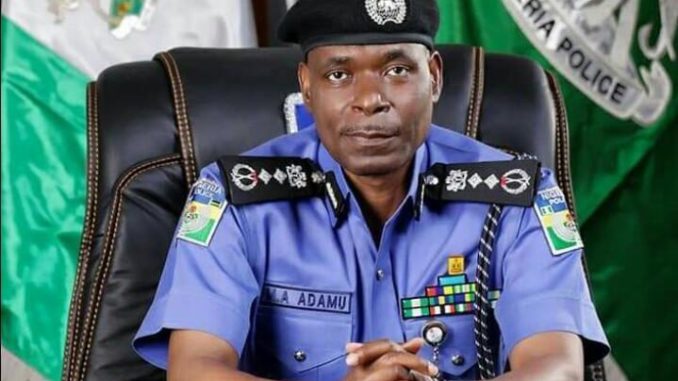
The Inspector-General of Police (IGP), Mohammed Adamu, at the weekend bowed to the pressure by a robust Movement of Nigerian Youth calling for the ban of the Federal Special Anti-Robbery Squad (a.k.a. SARS) and announced the disbandment of the now notorious unit of the police force in spite of measures earlier announced to curtail the excesses of members of the unit saddled with the responsibility addressing cases of arm robberies and kidnappings.
The young campaigners were apparently unmoved by the police authorities’ claim and pledge to reform the system and so had sustained the call for a total disbandment of the squad with the hashtag #EndSARS, which gained the attention of the international community, which had been following the protest for change.
While the decision is laudable and the government commended for giving ears to the cries of its citizens, it is however not yet Uhuru as many see the police action on the now disbanded unit as a mere reflection of the federal police force. Disbanded as it may be, erstwhile members of the “SARS” remain officers and men of the Nigeria police force and as such it is not a misplaced concern that, unless a fundamental reform of the architecture of the police force is undertaken, it may be the case of an old wine in a new bottle. The institution under its current structure has failed to live up to the expectations of a 21st century society in the areas of crime prevention, detection and prosecution.
The government needs to undertake a holistic reform of the institution, if it hopes to assure Nigerians of its commitment to the safety of their life and property. Periodic training of officers and men of the force cannot be over emphasised, to further reposition the institution to tackle issues of security threats and challenges in a civil society. No doubt, an efficient criminal administration system will boost investors’ confidence, which ultimately leads to economic development.
While the nefarious actions of some members of the police force should not be excused, the government needs to make an appreciable provision for the welfare of members of the police force of whom so much is expected. Most police officers are poorly remunerated in the police barracks which are equally in an appalling condition, yet they are tasked with the duty of protecting the lives and property of Nigerians against dare devil criminals who ever emboldened by the deplorable state of the economy and in some cases are better equipped.
There have been ancient stories of how most police formations are grossly underfunded, and divisional officers are left with the option of devising means of generating funds for their daily operations, which in recent times now include provision of security details for VIPs, a situation that has reduced most police officers to purse carriers and chauffeurs for wealthy politicians. These issues have impaired the attitude and altitude of most officers to work. So, rather than employing deterrent measures, they have become agent provocateurs, so as to generate adequate take-home pay. It is therefore clear that government needs to ensure the institution receives adequate funds as the police is not a revenue generation agency.
Once again, this emergency measure on the police has led to the call for the devolution of the powers of the police, by the creation of legal state police. It is an anomaly to refer to state chief executives as chief security officers of their respective states while they lack the constitutional powers to control the Unit under their command. These sentiments were reechoed by the Governor of Oyo State, Mr. Seyi Makinde when he voiced his frustrations at the weekend over the killing of one Jimoh Isiaka, who was involved in the #EndSARS protest in the state by members of the police force who were alleged to have engaged the protesters with live ammunitions, leading to his death and the injury of at least five others. It stands to reason, therefore, that the challenges in all the nooks and crannies of the states cannot be addressed by one man tucked far away in the nation’s capital, as adequate policing in a federal system requires the operation of decentralised units.
Certainly, Nigerians deserve more than a rhetoric each time a measure of good governance is demanded of its government. And so, this administration needs to do more in the areas of good governance if it hopes to preserve what’s left of its fast receding goodwill. It must follow through with the promised reforms, as that’s the only way Nigerians can be assured that the lives that were lost by some young Nigerians in the cause of the #EndSARS protests were not in vain.
If there’s any lesson to be learnt from the #EndSARS protest, it is the knowledge that ultimate power rests with the electorates, as such Nigerians must be persistent in their quest for good governance by the elect and demand more of elected officers, for this is the beauty of the democratic system of government.
END

Be the first to comment